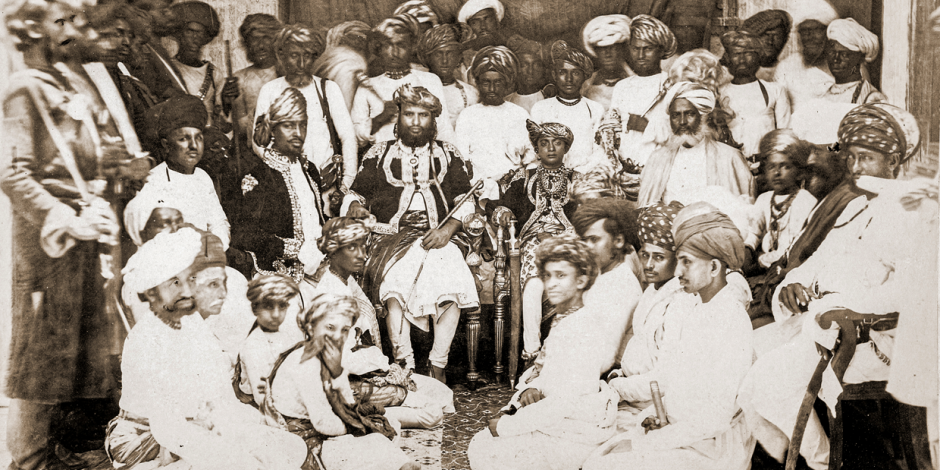Starten Sie den Audio-Text
Mit dem Audio-Player können Sie sich den Text anhören. Darunter finden Sie das Transkript.
Transkript: Mahabat Khanji — the lion prince of Junagadh
In Eccentric Life, we hear about the last ruling nawab of the state of Junagadh in the west of India.
Muhammad Mahabat Khanji III Rasul Khanji was the last nawab of Junagadh (today part of the Indian state of Gujarat). He ruled from 1911 until the end of the British Raj, in 1947.
Known as Mahabat Khanji, the nawab enjoyed an extravagant lifestyle. He loved animals and owned hundreds of dogs, and he liked to give his pets expensive birthday presents. Mahabat Khanji also held weddings for his dogs at which the “brideBrautbride and groomBräutigamgroom” were dressed in brocadeBrokatbrocade and wore gold braceletArmkettebracelets.
The nawab, in fact, loved every kind of animal and was a committedengagiertcommitted conservationist who set up initiatives to help protect local wildlife. In the 1920s and 1930s, those initiatives helped to to ensuresicherstellenensure the survival of the Kathiawari desert war horse and a breed of local cattleRinder, Viehcattle. Mahabat Khanji is best known, however, for his efforts to preserve the Asiatic lion, which by the early 20th century was under threat of being hunted to extinction.
In 1920, Mahabat Khanji came of age and — since his three older brothers had already died — he also became the ruler of Junagadh. His lands included an area called the Gir Forest, which was home to the few remaining Asiatic lions. British and Indian hunters saw the Asiatic lion as a trophy animal, but Mahabat Khanji refused their requests to hunt on his land. His refusal saved the lions from extinctionAussterbenextinction — their habitat was preserved and the area is now a wildlife sanctuarygeschützter Lebensraum für Tierewildlife sanctuary.
Perhaps the nawab saw himself as one of a rare breedRassebreed also facing extinction. In the 1930s, he visited India’s spiritual leader, Mahatma Gandhi, at his ashram in Ahmedabad. In search of his own vision for the future of India, Mahabat Khanji asked Gandhi for inspiration. Gandhi, who liked to give away his old glasses to visitors, presented the nawab with a pair of his round, wire-rimmed spectaclesBrille mit Drahtgestellwire-rimmed spectacles, and told him that they were the “eyes” that had given him the vision to free India.
Gandhi’s words do not seem to have given Mahabat Khanji the illuminating insight he was hoping for. By 1947, with independence waiting in the to wait in the wingsin den Startlöchern stehenwings, the nawab — like all of the country’s rulers — was being asked to choose between becoming part of India or Pakistan.
Junagadh was predominantlyüberwiegendpredominantly Hindu, but Mahabat Khanji, a Muslim, chose to join Pakistan. After protests from the local Hindu population, the Indian army took over Junagadh, and the state’s accessionÜbergangaccession to India was confirmed through a referendum. The nawab went into exile in Karachi, Pakistan, leaving behind most of his possessions but taking his dogs — and the glasses he had been given by Gandhi — with him. Mahabat Khanji died in Pakistan in 1959 at the age of 59.
There is a footnote to the spectacles Mahatma Gandhi gave to the nawab. They turned up at a US auction house in 2009 — part of a lot put up for sale by Talatsahid Khan Babi, Mahabat Khanji’s great-grandson. Among the other objects being auctioned were a pocket watch, letters, sandals, a bowl and a plate — all of which had once belonged to Gandhi.
The lot was expected to bring in between $20,000 and $30,000. In the end, the various itemArtikel, Gegenstanditems sold for $ 1.8 million.
Neugierig auf mehr?
Dann nutzen Sie die Möglichkeit und stellen Sie sich Ihr optimales Abo ganz nach Ihren Wünschen zusammen.



